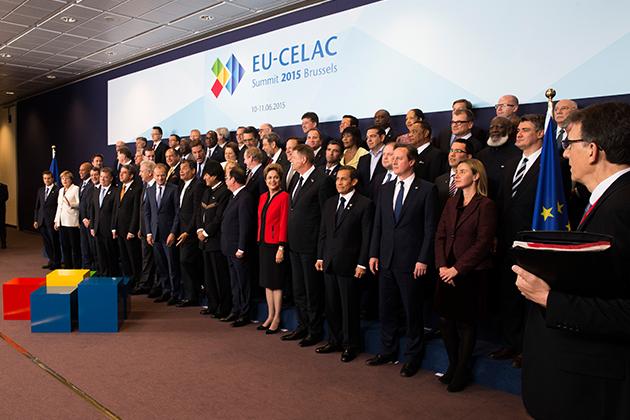Icelandic Eurovision Controversy: Calls To Expel Israel For Alleged War Crimes And Ethnic Cleansing

Table of Contents
The Accusations and their Impact on the Icelandic Eurovision Debate
The calls for Israel's expulsion stem from accusations of war crimes and ethnic cleansing, primarily targeting Palestinian populations in the occupied territories. These allegations, detailed in reports from organizations like Human Rights Watch and Amnesty International, include instances of excessive force against civilians, demolitions of homes, and discriminatory practices. Specific examples cited often involve events in Gaza and the West Bank.
- Sources of Accusations: These allegations are not new; they've been consistently documented by numerous human rights organizations and appear frequently in international media reports.
- Connection to Expulsion Calls: Activists argue that allowing a country facing such severe allegations to participate in Eurovision normalizes and legitimizes these actions, undermining the event's purportedly apolitical nature.
- Icelandic Involvement: Icelandic activists and some political figures have been vocal in their support for Israel's expulsion, amplifying these accusations on a national and international stage.
- Government Response: The Icelandic government's official stance on the matter warrants further examination and requires further research to ascertain their exact position.
Arguments for Israel's Expulsion from Eurovision
The ethical considerations underpinning the calls for expulsion are central to the debate. Proponents argue that hosting a country accused of such serious human rights violations contradicts the values of inclusivity and respect for human dignity.
- Moral Arguments: Many believe that Eurovision, while a celebration of music and culture, cannot remain oblivious to egregious human rights violations. Allowing Israel to participate is seen by some as tacit approval of these actions.
- Legitimizing Actions: The argument is that Eurovision's global platform could inadvertently legitimize Israel's actions in the eyes of the international community.
- Symbolic Weight: Excluding Israel would carry significant symbolic weight, sending a message that such alleged actions have consequences within the international arena.
- Boycotts and Protests: Several organizations have called for boycotts and protests against Israel's participation in Eurovision, further escalating the controversy.
Arguments Against Israel's Expulsion from Eurovision
Counterarguments to the expulsion calls emphasize the importance of maintaining Eurovision's apolitical nature and avoiding potentially damaging precedents.
- Separating Art and Politics: Opponents argue that the Eurovision Song Contest should remain a platform for artistic expression, independent of political considerations. Mixing politics and artistic competition could severely damage the event's integrity.
- Dangerous Precedent: Expelling Israel could establish a dangerous precedent, opening the door for politically motivated exclusions in the future. This could lead to a highly politicized and unstable contest.
- Counter-Protests and Backlash: Expulsion could provoke significant counter-protests and backlash, potentially escalating tensions further.
- Impact on the Artist: Critics point out the unfairness of punishing an individual artist for the actions of their government.
The Role of Social Media and Public Opinion in the Icelandic Eurovision Controversy
Social media has played a pivotal role in shaping public discourse surrounding the Icelandic Eurovision Controversy. It has amplified both sides of the debate, creating a highly charged online environment.
- Amplifying the Debate: Twitter, Facebook, and other platforms have provided avenues for activists, commentators, and concerned citizens to express their views.
- Hashtags and Campaigns: Hashtags like #EurovisionIsrael and #BoycottEurovision have become rallying points for both sides of the debate.
- Tone of Online Discussions: Online discussions have often been highly emotional and polarized, reflecting the deeply held beliefs on this sensitive issue.
- Shaping Public Opinion: The intensity of the online debate has undoubtedly influenced Icelandic public opinion, making the Icelandic Eurovision Controversy a significant topic of national discussion.
Conclusion
The Icelandic Eurovision Controversy encapsulates a complex interplay of political accusations, ethical considerations, and the global impact of a major international event. The debate highlights the strong opinions held on both sides regarding Israel's participation and the challenges of separating art from politics on a global stage. The arguments for and against expulsion reveal the profound ethical dilemmas inherent in such situations. The role of social media in amplifying the debate is also undeniable. Further discussion and analysis of the Icelandic Eurovision Controversy are crucial to understanding the evolving dynamics of international relations and the responsibility of global cultural events like the Eurovision Song Contest. Continue the conversation about the Icelandic Eurovision Controversy and engage with the debate responsibly.

Featured Posts
-
 Israels Eurovision Hope Yuval Raphaels Improved Second Rehearsal
May 14, 2025
Israels Eurovision Hope Yuval Raphaels Improved Second Rehearsal
May 14, 2025 -
 Dokovicev Put Do Vrha Rusenje Federerove Dominacije
May 14, 2025
Dokovicev Put Do Vrha Rusenje Federerove Dominacije
May 14, 2025 -
 Planning A May Getaway Your Guide To The Best Travel Destinations
May 14, 2025
Planning A May Getaway Your Guide To The Best Travel Destinations
May 14, 2025 -
 Celac Summit A Push For Stronger Regional Integration
May 14, 2025
Celac Summit A Push For Stronger Regional Integration
May 14, 2025 -
 Sinner Vs Federer The Power Of Branding And Logo Design
May 14, 2025
Sinner Vs Federer The Power Of Branding And Logo Design
May 14, 2025
